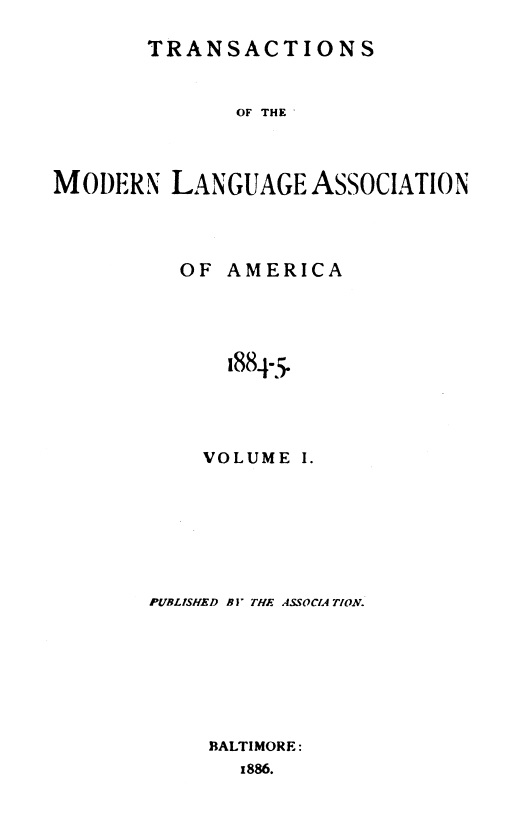Article contents
Richter's Correspondence with a Lady. Some Unpublished Letters
Published online by Cambridge University Press: 11 February 2021
Extract
In 1796, Richter was living at Hof, in the house with his mother. He sat at his writing-desk in the same room where she was busy with household occupations and composed his humorous, pathetic, and grotesque sentences to the music of the broom, the dish-pan, and the spinning-wheel. Those harmonies were quite unlike the music to which Goethe listened, according to the story in his letters to Frau von Stein as he developed the ‘Iphigenie,’ quite unlike the music under whose inspiration Schiller essayed to rewrite the Fiesko at Oggersheim, of which Streicher tells us in the naïve narrative of Schiller's flight Richter was fully as sensitive to harmony as either Goethe or Schiller, and his improvisations on the piano became afterwards one source of his personal power over refined minds. But there was so great a capacity for higher music within him, that he was sometimes able to forget the discordant noises about him, and many of these higher notes which he struck are so pure and sweet that his critics are apt to overlook the disadvantages of his surroundings. That he himself in some moods keenly felt these limitations is plain enough from his writings. Even the household noises could not always be ignored, and were plainly now and then no inconsiderable disturbance to that serenity of mind necessary for the flight of his imagination. In ‘Siebenkäs,’ which is, as a whole, a pathetic account of his household relations, the fifth chapter containing the recital of Siebenkäs' efforts to adjust the domestic noises to his mental moods gives a clear insight into the difficulties under which Richter wrote the ‘Quintus Fixlein’ and the ‘Siebenkäs.‘
- Type
- Research Article
- Information
- Transactions of the Modern Language Association of America , Volume 1: Transactions 1884-1885 , 1885 , pp. 3 - 24
- Copyright
- Copyright © Modern Language Association of America, 1885
References
1 This sentence refers to a passage in Frau Kropf's letters to Richter in which she says, evidently alluding to Ahlefeldt's praise of her: “I earnestly entreat you to count on northing which you have perhaps heard through our friend of this Baireuth Clotilde. He has certainly given to my figure the coloring of love, which beautifies everything physically and morally.”
Note 1 page 6 Both in ‘Jean Paul's correspondence with Otto’ and ‘Truth from Jean Paul's Life,‘ the names of many of Richter's correspondents and friends are intimated rather than given. Both books were published while some of the actors were still living, and apparently from deference to their possible sensitiveness the names were not fully stated.
Note 1 page 8 In one of Richter's letters to Otto, he thus alludes to the epistle to which the above is apparently the reply: “At the letter of a wife I have been astonished. I have in the world the peculiar fate from Baireuth on to Leipzig and Berlin that, stand where I may, I always stand between two lovers as the third man with a beautiful, shining bald-head.”
Note 1 page 13 As Ahlefeldt had thus named Frau Kropf to Richter after a leading ‘Hesperus,‘ doubtless Richter had already mentioned to Otto this double compliment to himself and Frau Kropf.
Note 1 page 14 It is almost impossible to render into English the half-pun in the words ankommen und anlaufen.
2 Apparently a medicine which Richter had taken, in which the main ingredient was the Menyanthes trifoliata—a variety of gentian.
3 Does Richter refer to a parting kiss, and if so, is the moon-light scene in ‘Siebenkäs,’ chap. xiv, where Firmian parts from Natalie, a reminiscence of this parting? A translation of ‘Siebenkäs’ was published in Boston, one volume in 1863, and the second in 1865. The full title is ‘Flower, Fruit, and Thornpieces; or the Married Life, Death, and Wedding of the Advocate of the Poor, Firmian Stanislaus Siebenkäs.‘
Note 1 page 15 An evident allusion to her ‘married life without love.‘
Note 1 page 16 Evidently Ahlefeldt again.
Note 2 page 16 An apparent allusion to some previous incident in Frau Kropf's life.
Note 1 page 18 That is because going to Baireuth to visit Frau Kropf.
Note 1 page 19 “In order that I might save the poor woman the money and fatigue, and keep her child from having a catarrh, I did not after all have her go to Baireuth,” is written as a note at the foot of the first page of the letter.
Note 2 page 19 Probably General Kropf, husband of the lady to whom there letters are addressed.
- 1
- Cited by




